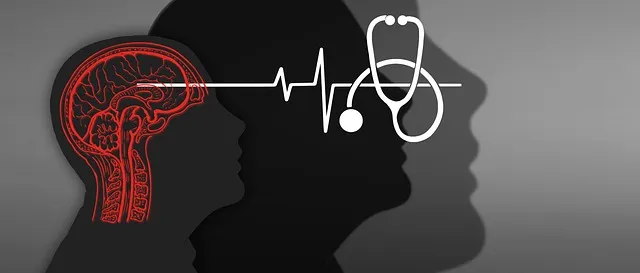Media portrayal of mental health significantly shapes public understanding and attitudes, with accurate, sensitive, and diverse depictions promoting empathy and reducing stigma. Kaiser Permanente Boulder has addressed this issue by launching comprehensive training programs for healthcare providers focusing on responsible media representation. These workshops challenge negative stereotypes, teach burnout and depression prevention, and enhance communication strategies to deliver empathetic care. Through initiatives like Mental Wellness Journaling, these programs foster nuanced media coverage of mental illness, empowering communities to seek support and fostering an inclusive society.
Mental illness representation in media significantly influences public perception, impacting the way we understand and support mental health. This article explores how Kaiser Permanente Boulder’s innovative training programs challenge negative stereotypes by fostering accurate, empathetic portrayals of mental health on screen. We delve into their strategies, highlighting the importance of diverse, positive representations for improved mental health awareness and reduced stigma. By examining these initiatives, we uncover actionable solutions to enhance media portrayal, reflecting the growing need for responsible representation in the digital age.
- Understanding the Impact of Media Portrayal on Mental Health Perception
- Kaiser Permanente Boulder's Approach: Training Programs for Positive Change
- Strategies and Solutions: Enhancing Media Representation for Better Mental Health Awareness
Understanding the Impact of Media Portrayal on Mental Health Perception

Media portrayal plays a significant role in shaping public understanding and perception of mental health issues. The way mental illness is depicted in films, television shows, and news articles can influence societal attitudes and behaviors towards individuals living with these conditions. When media portrays mental illnesses accurately and with sensitivity, it can foster empathy, reduce stigma, and promote help-seeking behaviors. However, inaccurate or stereotypes representations can lead to further marginalization, fear, and misconceptions.
Kaiser Permanente training programs in Boulder, Colorado, have recognized the importance of responsible media representation. They emphasize the need for accurate, diverse, and nuanced portrayals of mental health to empower individuals and communities. By promoting practices like building resilience through mindfulness meditation and cultivating emotional intelligence, these programs aim to challenge negative stereotypes and support those affected by mental illness. Encouraging ethical storytelling can contribute to a more inclusive and supportive society, reflecting the complex realities of mental health experiences.
Kaiser Permanente Boulder's Approach: Training Programs for Positive Change

Kaiser Permanente Boulder has taken a proactive approach to addressing mental health representation in media by implementing comprehensive training programs. Their initiative focuses on empowering healthcare providers with essential tools and knowledge to navigate conversations about mental illness effectively. These programs aim to challenge stereotypes often portrayed in media and instead promote accurate, empathetic, and supportive interactions.
Through interactive workshops and educational sessions, Kaiser Permanente Boulder’s training covers various aspects, including Burnout Prevention Strategies for Healthcare Providers, Depression Prevention, and Communication Strategies. By fostering a deeper understanding of mental health conditions, these programs encourage healthcare professionals to offer more compassionate care while dispelling myths prevalent in media representations.
Strategies and Solutions: Enhancing Media Representation for Better Mental Health Awareness

Media representation plays a pivotal role in shaping public perception about mental health, and it’s crucial to ensure accurate and empathetic storytelling. To bridge the gap between media portrayal and reality, several strategies have emerged as powerful tools for enhancing Mental Health Awareness. One notable initiative is the implementation of training programs offered by organizations like Kaiser Permanente Boulder. These programs equip media professionals with a deeper understanding of mental illness, fostering more nuanced and sensitive coverage.
By incorporating practices such as Mental Wellness Journaling Exercise Guidance and Risk Management Planning for Mental Health Professionals, media outlets can create authentic narratives that resonate with audiences. This approach not only educates viewers but also promotes open dialogue about mental wellness, challenging stigmatized perceptions. As a result, communities are empowered to seek support and initiate important conversations on Mental Health Awareness, ultimately fostering a more inclusive and supportive society.
Mental illness representation in media significantly impacts public perception and understanding of mental health. By challenging negative stereotypes, accurate and positive portrayals can foster a more inclusive society. Kaiser Permanente training programs in Boulder have been instrumental in empowering individuals to navigate this landscape, promoting empathy, and advocating for better mental health awareness. Through ongoing education and collaborative efforts, we can ensure that media representation serves as a catalyst for positive change, reflecting the diversity and resilience of those living with mental illness.






